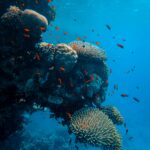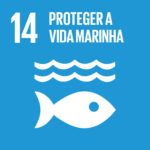
Plant a Coral. Did you know that you can adopt a coral and support its research?
Created by the University of the Algarve’s Marine Sciences Center, the Plant a Coral project aims to rescue specimens accidentally caught in fishing nets and
We didn't find any happenings mapped to your criteria.
Try the traditional search to find articles not yet mapped with RUA.
We didn't find any happenings mapped to your criteria.
Try the traditional search to find articles not yet mapped with RUA.
We didn't find any happenings mapped to your criteria.
Try the traditional search to find articles not yet mapped with RUA.
We didn't find any happenings mapped to your criteria.
Try the traditional search to find articles not yet mapped with RUA.
The sanctuary will conserve the resident population of more than 200 sperm whales living near the Caribbean island of Dominica and sequester carbon off the ocean floor.
The Caribbean island state of Dominica is to create the world’s first marine protected area for sperm whales off the island. It is one of the few countries where there is a resident population of more than 200 sperm whales.
The reserve will cover around 800 square kilometers on the western side of the country, an area which serves as important nursing and feeding grounds for the sperm whale.
“These two hundred sperm whales that call our sea home are esteemed citizens of Dominica. Their ancestors probably inhabited the area before humans arrived here (…) We want to ensure that these majestic and highly intelligent animals are free from danger and continue to keep our waters and climate healthy,” Dominica’s Prime Minister Roosevelt Skerrit said in a statement.
According to the scientists, the sanctuary will help not only to protect the species, which is currently at risk of extinction, but also to combat climate change by sequestering carbon at the bottom of the ocean. The reserve will allow the equivalent of 5,000 cars to be taken off the road every year
Sperm whales can dive to depths of several meters, but they defecate near the surface when they come up for air, creating areas rich in plankton. These organisms capture carbon dioxide from the atmosphere and drag it to the bottom of the ocean when they die.
Shane Gero, founder of the Dominica Sperm Whale Project, a research program focused on Dominica Sperm Whale whales in the eastern Caribbean, stressed the importance of protecting this species, which only produces young every five to seven years and of which there are only 800,000 individuals left.
Sperm whales have been hunted for their oil (used for domestic and public lighting and to produce machinery lubricant), hit by ships, trapped in fishing nets and affected by agricultural waste, resulting in a stead decrease of the number of whales in sperm whale families, limiting their survival.
According to the Dominican government, commercial fishing will be banned in the marine protected area, but artisanal fishing will be allowed, as long as it is sustainable and does not endanger these whales. Large ships will be obliged to use ocean corridors, designed to reduce noise and the risk of collisions and reduce the likelihood of them getting stuck while fishing.
The government will also appoint a manager and observers to ensure that both the area and tourism regulations are respected (tourists will be able to swim with sperm whales and observe them from a boat, but in limited numbers).
“Protecting these whales gives us an incredible and cost-efficient climate solution that has been overlooked by policymakers,” said Enric Sala, an explorer with the National Geographic Society, which launched the Pristine Seas program and has been advising the Dominican government on this project, quoted in the statement.
According to the 2019 study “Nature’s Solution to Climate Change”, the recovery of the whale population in the oceans to pre-intensive hunting levels, together with the increase in plankton, would help to capture four times more carbon dioxide than the Amazon rainforest.
Sperm whales manage to accumulate large amounts of carbon dioxide (CO2) in their bodies throughout their lives – each one sequesters an average of 33 tons of CO2, even after they die, when their bodies sink into the sea.


Created by the University of the Algarve’s Marine Sciences Center, the Plant a Coral project aims to rescue specimens accidentally caught in fishing nets and

This article addresses an action that promotes the conservation and sustainable use of oceans, seas, and marine resources for sustainable development. This SDG aims to prevent and reduce marine pollution of all kinds, particularly from land-based activities.
 To discover businesses that are actively working to contribute to this Sustainable Development Goal, click here.
To discover businesses that are actively working to contribute to this Sustainable Development Goal, click here. To read news, interviews or tips related to this Goal, click here.
To read news, interviews or tips related to this Goal, click here.Esta publicação também está disponível em:
![]() Português (Portuguese (Portugal))
Português (Portuguese (Portugal))

